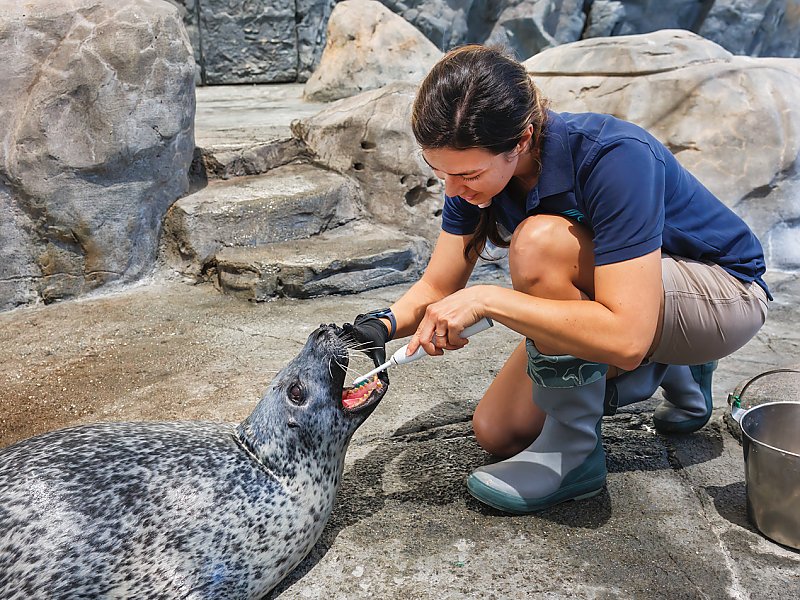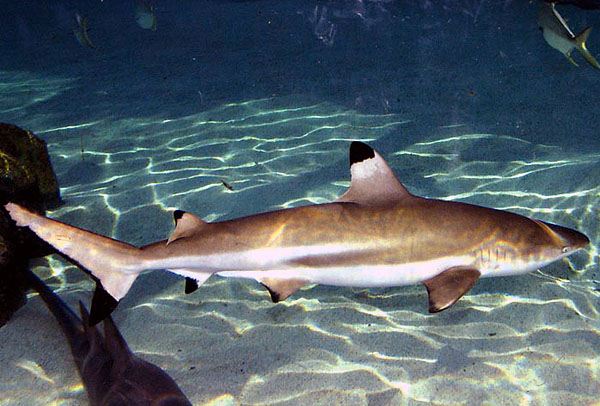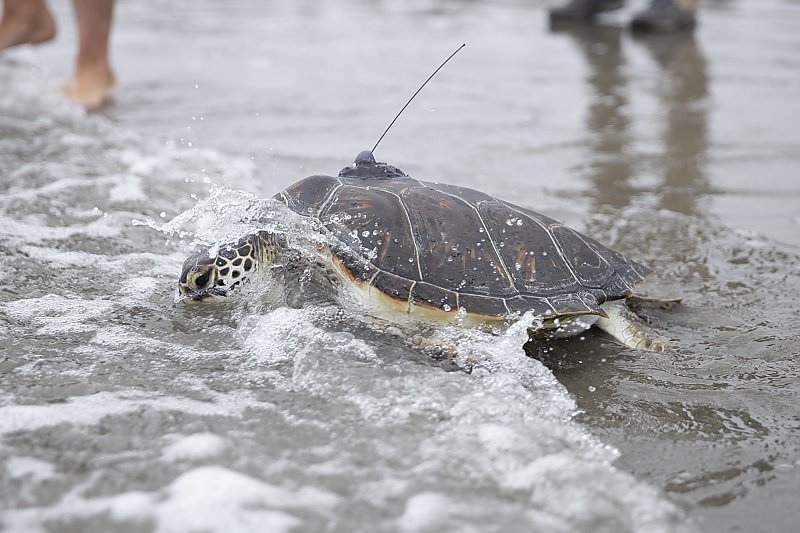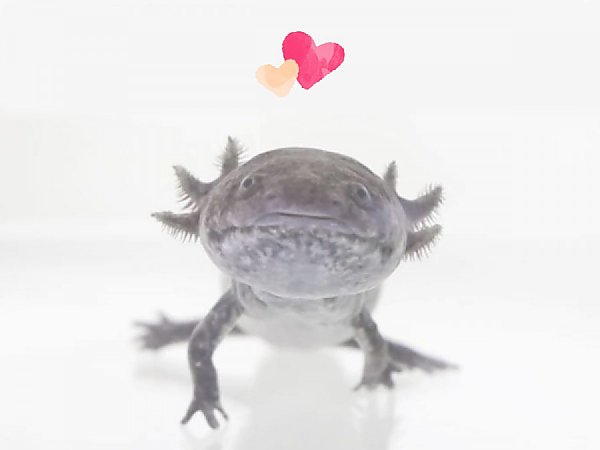
We are Setting the Standard in Animal Well-Being and Welfare
The Aquarium of the Pacific and its staff are deeply committed to leading the way in setting new standards in compassionate animal care.
Since 2009 the Aquarium’s staff veterinarian, Dr. Lance Adams, has been studying the feasibility of artificial insemination to help with the management of captive shark populations.

Artificial insemination (AI) could have many benefits, including decreased risk of injury to sharks from breeding activities, increased breeding and reproductive success, and the ability to manage genetic diversity sustainably in the aquarium population. Promising results have been obtained with two species of egg-laying sharks: bamboo sharks (Chiloscyllium sp.) and zebra sharks (Stegostoma fasciatum). Zebra sharks are listed internationally as vulnerable to extinction.
Aquarium staff lends a hand to help understand sharks through Global FinPrint
Through the use of Baited Remote Underwater Videos (BRUVs), scientists are able to learn about shark distribution and population at hundreds of reefs around the world. Aquarium of the Pacific staff has participated in these efforts in collaboration with Global FinPrint by monitoring the numerous videos and logging the appearance of sharks and rays. This information has been used by scientists for further analysis of shark populations. The information gained in this way helps inform policy decisions to protect reefs and shark populations and identify shark hotspots that need protection. Sharks are an integral part of our ocean ecosystems, and many shark species are threatened with extinction due to overfishing, unsustainable fishing practices, and habitat destruction. To better understand this problem, Global FinPrint, a collaboration of scientists and conservation organizations around the world, is working to survey global shark populations.
People can help sharks by making sustainable seafood choices and supporting legislature to protect sharks and their habitat. Visit globalfinprint.org for more information.

The Aquarium of the Pacific and its staff are deeply committed to leading the way in setting new standards in compassionate animal care.

Join us, as your support of our conservation and education programs will help the Aquarium of the Pacific empower and inspire young ocean stewards and positively transform our oceans for generations to come.

Adopt an axolotl at the $100+ level to receive a special Valentine’s themed box that includes a snuggly axolotl plush, customizable Valentine’s Day card, an animal fact card and candy. Plus, the first 60 to adopt an axolotl will get an additional gift – an axolotl themed slime! Adopt by February 4 to ensure holiday delivery. While supplies last!